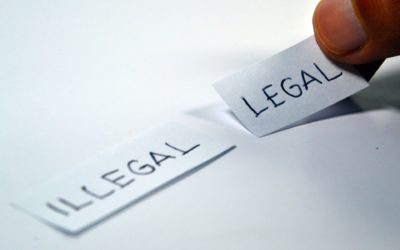Exempt property
While article 2284 of the Civil Code provides that "Anyone who has committed himself personally shall be bound to fulfil his commitment on all his movable and immovable property, present and future", the law has provided for exceptions to this general principle, listing exhaustively cases of unseizability.
A brief overview of the elusive assets.
Property that is exempt from seizure includes both movable and immovable property, tangible and intangible property.
Exempt Tangible Personal Property :
Most of them are listed in Article R112-2 of the Code of Civil Enforcement
Procedures:
1° Clothes;
2° Bedding;
3° Household linen;
4° Objects and products necessary for personal care and the maintenance of the premises;
5° Foodstuffs;
6° Household objects necessary for the conservation, preparation and consumption of food;
7° The appliances necessary for heating;
8° The table and chairs for taking meals together;
9° A piece of furniture for storing linen and clothes and another for storing household items;
10° A washing machine;
11° Books and other objects necessary for the pursuit of studies or professional training;
12° Children's objects;
13° Memorabilia of a personal or family nature;
14° Pets for the apartment or for keeping;
15° Animals intended for the seized person's subsistence as well as the foodstuffs necessary for their breeding;
16° Work tools necessary for the personal exercise of the professional activity;
17° A telephone set allowing access to the fixed or mobile telephone service.
However, this list suffers from exceptions
The first is the fact that such property becomes seizable if it is located in a place other than that where the seized debtor usually lives or works.
Thus, all furniture in a secondary residence, for example, would be subject to seizure, even if it is listed. However, the doctrine considers that in the case of a secondary residence, the unseizability should be extended. To our knowledge, there is no published case law on this subject. In any event, property in a furniture repository, for example, can be seized.
The second exception concerns goods of value by reason of their importance, materiality, rarity, age or luxury.
Third exceptionIn the case of goods which de facto lose their character of necessity because of their quantity or if they constitute tangible elements of a business.
Thus, the equipment and tools in a business lose the unseizable character that they could have because of their necessity for the business, because they are tangible elements of the business.
Fourth exception The listed goods lose their unseizable character in order to obtain their payment.
Warning: exception to this : All the goods listed above are ALWAYS exempt from seizure even for payment of their price if their owner is a beneficiary of child welfare provided for in Articles L222-1 to L222-7 of the Social Action Code.
In addition to this list provided for in Article R112-2 of the Code of Civil Enforcement Proceedings, other tangible assets are exempt from seizure:
These are :
- available assets declared unseizable by the testator or donor,
Exception
The latter two categories are not subject to any exception
.
Unseizable intangible personal property :
Among the intangible movables that are made exempt from seizure, we find:
- Provisions, sums and alimony payments
Exception On bank accounts, the amount of the RSA is always exempt from seizure when the debtor is a natural person
.
Exception: If the amount of the RSA is to be left by the bank at the disposal of the debtor, this amount can only be reserved once a month: If the debtor has two accounts in two banks, the RSA is only left at the disposal of the debtor once.
Unseizable real property :
Since 7 August 2015, the main residence of an individual entrepreneur (registered in the RCS, the Trade Register, the Register of Craft, but also persons exercising an agricultural or self-employed activity) can no longer be subject to seizure of property by his creditors for his professional debts.
Exception This unseizability is not enforceable against the tax authorities in the event of fraudulent manoeuvres or serious or repeated non-compliance with tax obligations.
Warning: This exemption from seizure only applies to claims arising after 7 August 2015.
On the other hand, the sale price of the principal residence remains unseizable if, within the following year, it is reused to purchase a new principal residence.



